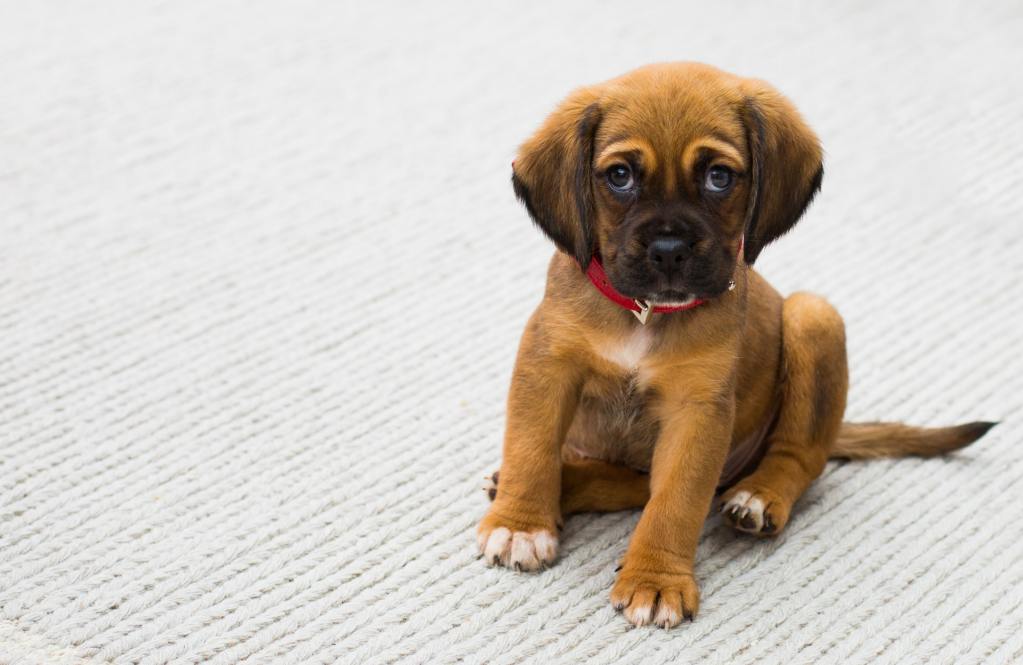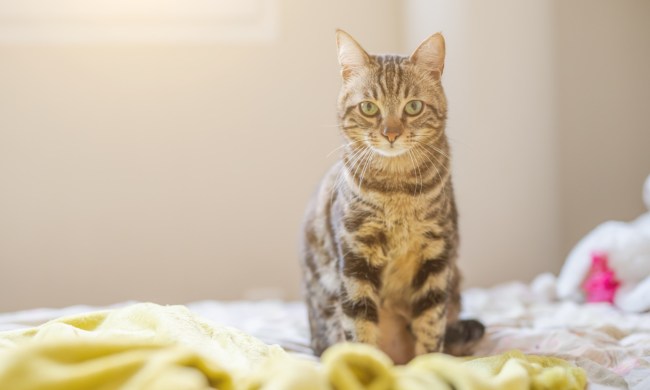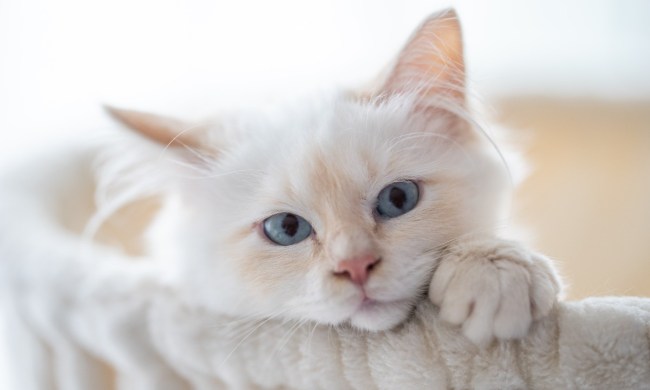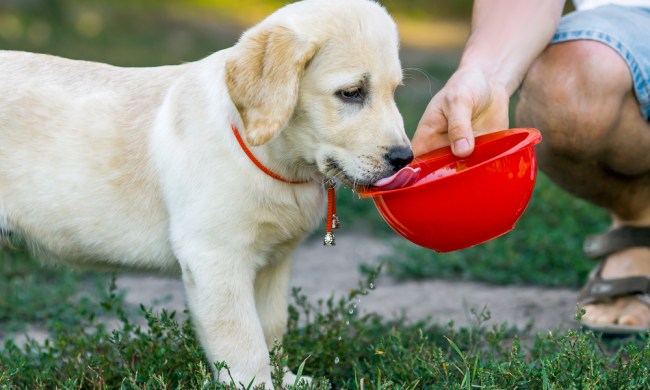You bought your puppy the cutest food dish money can buy, and you thoroughly researched proper diet and nutrition. You confirmed with your vet that you were doing everything right to give your puppy the best, most nutritious start to life. Then, suddenly, your puppy’s not eating.
It can cause new puppy parents to panic — you love your fur baby, and appetite is often a sign of good health. Plus, your puppy needs food to grow and to have energy for walking and playing with you.
If your puppy is not eating much (or at all), there may be several causes. Here are the most common and what you can do to get your little one’s mealtimes back on track.
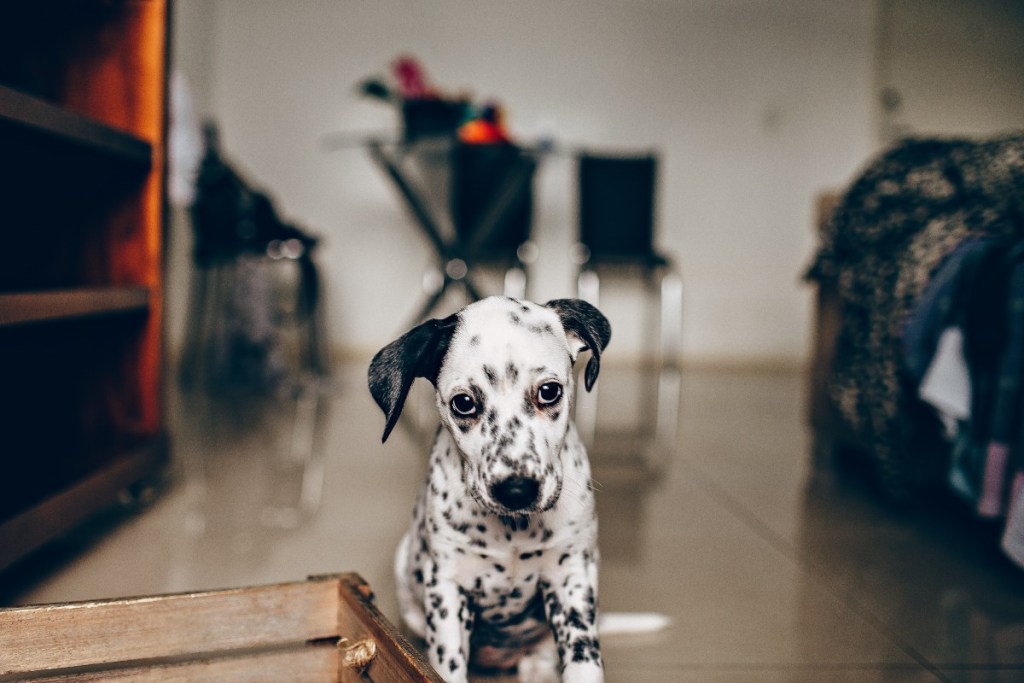
Does my puppy’s lack of appetite mean they are sick?
A lack of appetite or refusal to eat can be a sign of many canine illnesses, but a lack of appetite doesn’t always mean that your dog is sick. This is why it’s important to take a look at the big picture (or at your dog’s other symptoms) to figure out whether the cause of appetite changes is something to be concerned about. Sometimes, this will be obvious, but other times it might require the expertise of your trusted veterinarian.

Why is my puppy not eating? These are some of the most common reasons
Unfortunately, pups can’t tell us with words why they aren’t eating. However, experts such as veterinarians have observed a number of reasons for appetite loss over the years, including:
Your pup may not feel like eating when they’re stressed
When humans are stressed, we often change our eating habits, which sometimes means stress-eating. According to Preventative Vet, dogs may do the same, so be sure to think about what may be causing your dog to feel anxious. Some common puppy stressors include:
- Trouble adjusting to a new space. Moving to a new home can throw anyone for a loop, especially a dog that’s only a few weeks or months old. Your pup may need some extra patience and snuggles to get used to their new pad — and that’s OK!
- Another pet. Perhaps you already have a fur baby in the family. The other animal may be scary to your new little one … or vice versa!
- Changes in routine. If you’ve had your pet for a little while, you may think they’ve adjusted well. However, some changes, such as returning to the office after working at home may be stressful and be a reason why your puppy isn’t eating much.
Your dog might stop eating if you introduce a new food
Maybe your local pet shop didn’t have your pup’s usual brand, so you substituted it with another. Though the change may not seem like a big deal to you, your puppy may not like the taste or texture and reject the meal, particularly if you aren’t transitioning the food over a period of days. Transitioning your dog’s food can take up to two weeks when done correctly.
If your pup is ill or has parasites, they may not be interested in their meal
Stomach aches, infections, or parasites often cause a puppy to stop eating. Though getting a formal diagnosis from a vet is important, you can first check if your puppy has a fever or recently swallowed something not meant for dogs. You can offer a bland diet for one or two days as a reset, but don’t forget to visit your vet if things don’t get better.
When your pup is teething, they may be too sore for their usual food
Puppies — they’re just like toddlers. If your pup is teething, it may hurt to eat food. Luckily, this cause is temporary and will only be a problem for a little while.
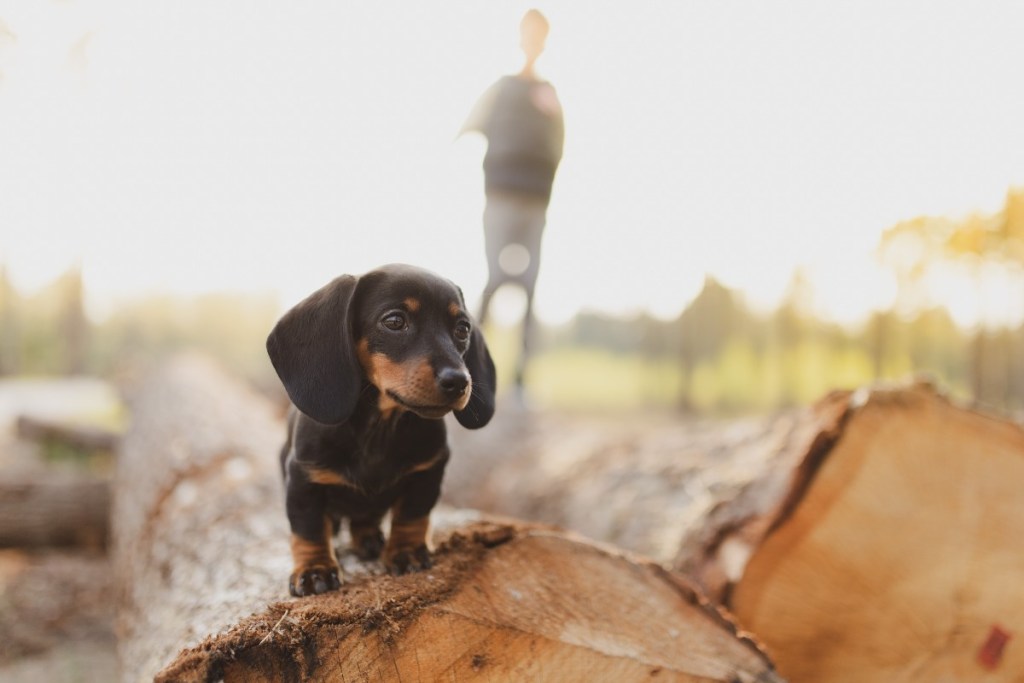
What can I do if my puppy stops eating? Should I be concerned?
You can take several courses of action to help your little one get back to chowing down. Experts suggest:
Take your puppy to see a veterinarian if symptoms don’t improve
It’s important to rule out underlying causes like parasites, GI troubles, or infections. These problems are often treatable with medication or temporary dietary changes. However, they can get worse if left untreated. That’s why a vet visit can be so important. Plus, your vet can give you tips on encouraging your dog to eat.
Sometimes, your puppy will only need some time to reset
If your puppy is having trouble adjusting, they may just need some time. Be patient and try to make them feel as comfortable as possible. A cozy crate, fun toys, and designated playtimes can help them feel at home. This is a great time to implement daily routines for potty breaks, meals, and walks — especially if your dog is new to your home.
Sometimes, all you need to do is warm the food up before serving
Puppies are finicky eaters — that’s just a fact — but warming up their meals, particularly if you are feeding them wet food, may help. Trial and error can help you figure out your pet’s preferences. But once you do, you’ll be so glad
Transition dog foods slowly to avoid tummy trouble and food aversions
If you need to change foods, experts suggest transitioning over the period of 10 days to help puppies adjust. On day one, use about 10% new food, 90% old food, and work your way up from there. As we mentioned, it can take up to several weeks to completely transition from one food to another.
Mix it up to keep things interesting for your hungry pooch
If your pet has trouble eating, you can try mixing in some table food, such as chicken broth or peanut butter. Ensure that the peanut butter does not have xylitol, which sugar-free versions often do. Trying a mix of canned and dry food instead of kibble may also help.
Make meals fun by finding different ways to give your dog their meal
Food shouldn’t be stressful for you or your puppy. Try making the experience more engaging by using food dispensers or puzzles. Even feeding kibble as a reward during obedience training can be a fun, interactive substitute.
Establish a routine to help everyone feel more secure
Like some people, puppies can thrive on routines. It helps them know what to expect, which may be particularly beneficial if your pup is stressed. Try designating a mealtime and feeding your puppy at the same time each day to help them pick up on the idea.
Limit treats so you don’t spoil their appetite
Training (and a pet’s overall cuteness) can cause pet parents to load up on rewarding their puppies with tasty treats. However, if your puppy isn’t eating, you may want to pull back on the treats.
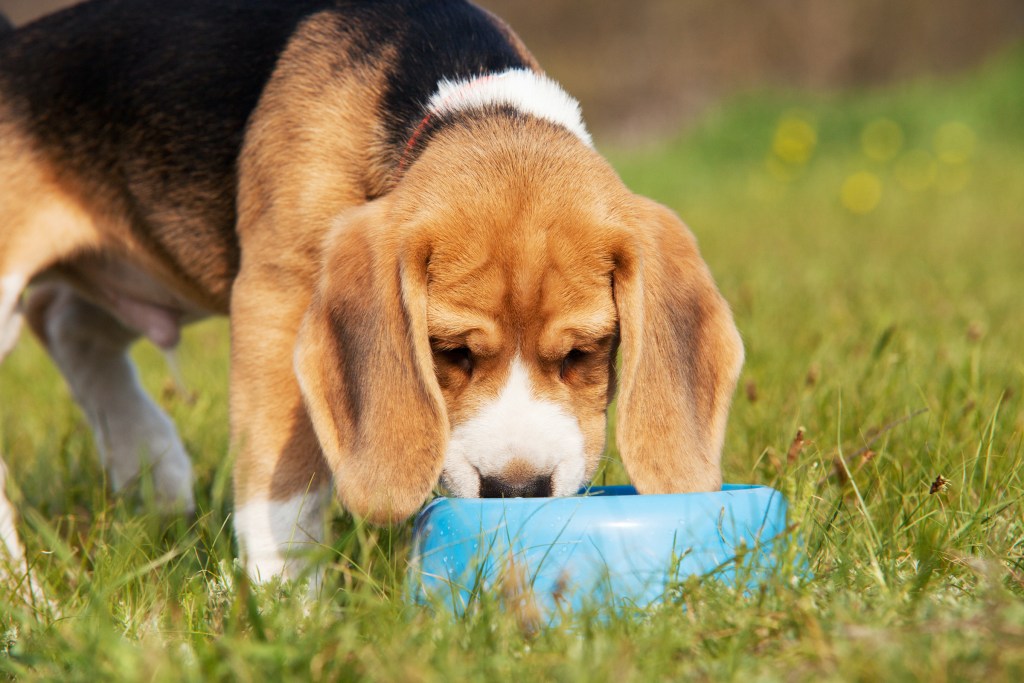
Your pup will get on track with enough focus and consistency
Food helps puppies grow big and strong, and a good appetite is often a sign of good health. As a result, pet parents may panic if their pup suddenly stops eating as much (or at all). First, breathe. Sometimes, puppies stop eating because they are stressed and may pick up on your anxieties and get even more worked up. A vet can rule out any health conditions and provide you with guidance.
Figuring out your puppy’s stressors, transitioning foods slowly, and offering different foods also can help encourage eating. Try feeding your pup at the same time every day and avoid overdoing it with treats — you want your growing dog to have enough room for a well-balanced meal.
